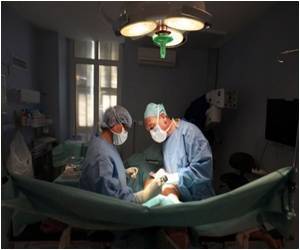

Dutch authorities on Thursday warned thousands of women who had breast implants made by French company Poly Implant Prothese (PIP) before 2001 to consider removing them because they may leak silicone that could harm their health.
The Health Ministry first raised concerns in 2010 about implants sold by the now defunct PIP. Based on new guidance from French authorities, it advised women to remove PIP implants done after 2001.
On Thursday, it expanded the warning to include women who had implants earlier, advising them to seek medical assistance.
A March 12 letter from the French health authorities, a copy of which was seen by Reuters, was sent to several European countries. It said PIP implants were sold in Europe before 2001.
The silicone implants were banned in France between 1995 and 2001 due to health concerns, but were still manufactured and exported by PIP to other European markets, it said.
Industrial silicone used in PIP's implants has leached into women's bodies. In France, 1,262 of the roughly 300,000 breast implants sold in the 1990s have split open.
The number of women affected by the implant scandal may now be much larger than previously thought, although it is unclear how many were sold outside France.
PIP's former owner, Jean-Claude Mas, is in prison awaiting criminal proceedings after missing bail payments. He began selling the Silopren, or liquid silicone, implants in 1992.
Silvie de Peijper, a Dutch health inspectorate spokeswoman, said there was no registry for breast implants in the Netherlands, so it was unclear how many women are at risk.
Dutch authorities estimate around 2,700 women in the Netherlands had PIP implants since 2001.
The Health Ministry first raised concerns in 2010 about implants sold by the now defunct PIP. Based on new guidance from French authorities, it advised women to remove PIP implants done after 2001.
On Thursday, it expanded the warning to include women who had implants earlier, advising them to seek medical assistance.
A March 12 letter from the French health authorities, a copy of which was seen by Reuters, was sent to several European countries. It said PIP implants were sold in Europe before 2001.
The silicone implants were banned in France between 1995 and 2001 due to health concerns, but were still manufactured and exported by PIP to other European markets, it said.
Industrial silicone used in PIP's implants has leached into women's bodies. In France, 1,262 of the roughly 300,000 breast implants sold in the 1990s have split open.
The number of women affected by the implant scandal may now be much larger than previously thought, although it is unclear how many were sold outside France.
PIP's former owner, Jean-Claude Mas, is in prison awaiting criminal proceedings after missing bail payments. He began selling the Silopren, or liquid silicone, implants in 1992.
Silvie de Peijper, a Dutch health inspectorate spokeswoman, said there was no registry for breast implants in the Netherlands, so it was unclear how many women are at risk.
Dutch authorities estimate around 2,700 women in the Netherlands had PIP implants since 2001.